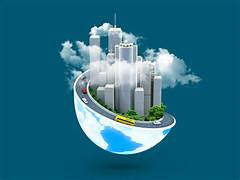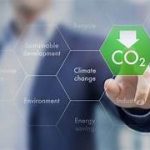Urbanization and Its Impacts on Climate Change
Introduction
Urbanization, the process of population movement from rural areas to cities, has transformed societies worldwide. While urbanization drives economic growth, technological advancement, and improved infrastructure, it also significantly contributes to climate change. The expansion of urban areas leads to increased greenhouse gas emissions, higher energy consumption, and environmental degradation. Understanding the link between urbanization and climate change is crucial in developing sustainable solutions to mitigate its adverse effects.
The Growth of Urban Areas and Its Environmental Consequences
Urbanization has been accelerating over the past century, with more than half of the world’s population now residing in cities. As urban areas expand, they consume vast amounts of resources, leading to environmental challenges such as deforestation, loss of biodiversity, and increased pollution.
- Increased Carbon Emissions
- Cities account for approximately 70% of global CO2 emissions due to transportation, industry, and energy use.
- The burning of fossil fuels for electricity and heating contributes significantly to air pollution and climate change.
- Energy Consumption
- Urban centers rely heavily on non-renewable energy sources to sustain their infrastructure.
- The demand for electricity, heating, and cooling systems in high-density populations exacerbates energy consumption.
- Deforestation and Land-Use Changes
- Urban expansion often requires clearing forests, which act as carbon sinks.
- The destruction of green spaces reduces biodiversity and increases surface temperatures, exacerbating the urban heat island effect.
The Urban Heat Island Effect and Climate Change
The urban heat island (UHI) effect occurs when cities experience higher temperatures than surrounding rural areas due to human activities. The proliferation of concrete, asphalt, and metal structures absorbs and retains heat, leading to increased energy demands for cooling.
- Temperature Rise
- Urban areas can be up to 5°C warmer than surrounding regions.
- Higher temperatures exacerbate heatwaves, affecting public health and increasing mortality rates.
- Air Pollution and Health Impacts
- Urbanization leads to higher emissions of pollutants such as carbon monoxide, nitrogen oxides, and particulate matter.
- Poor air quality contributes to respiratory diseases, cardiovascular problems, and premature deaths.
Transportation and Climate Change
The expansion of urban areas requires an efficient transportation network, but conventional transportation systems are major contributors to climate change.
- Reliance on Fossil Fuels
- Increased vehicle use leads to higher emissions of CO2 and other greenhouse gases.
- Traffic congestion exacerbates fuel consumption and air pollution.
- Public Transport and Sustainable Alternatives
- Investing in electric buses, subways, and cycling infrastructure reduces emissions.
- Carpooling, ride-sharing, and pedestrian-friendly urban planning help mitigate transportation-related climate impacts.
Sustainable Urbanization Strategies
Despite its challenges, urbanization presents opportunities for climate change mitigation through smart planning and sustainable policies.
- Green Infrastructure and Renewable Energy
- Expanding green spaces, such as parks and rooftop gardens, helps absorb carbon and reduce heat.
- Encouraging solar, wind, and hydroelectric energy reduces reliance on fossil fuels.
- Energy-Efficient Buildings
- Implementing green building codes, insulation, and energy-efficient appliances lowers energy consumption.
- Using sustainable materials and smart designs reduces the carbon footprint of new constructions.
- Improved Waste Management
- Recycling programs and waste-to-energy initiatives minimize landfill emissions.
- Reducing plastic usage and promoting composting help mitigate pollution.
Policy Interventions and Global Cooperation
Governments play a crucial role in mitigating the impact of urbanization on climate change. Effective policies and international collaboration are necessary for sustainable urban development.
- Urban Planning and Smart Cities
- Implementing zoning laws and regulations to limit urban sprawl reduces environmental degradation.
- Smart cities leverage technology to optimize energy use, waste management, and transportation.
- International Agreements
- Commitments such as the Paris Agreement encourage countries to implement climate-friendly urban policies.
- Financial and technological support for developing nations ensures equitable sustainability efforts.
Conclusion
Urbanization is an inevitable part of modern development, but it presents significant challenges to climate change. While cities are major contributors to greenhouse gas emissions and environmental degradation, they also offer opportunities for innovative solutions. Sustainable urban planning, renewable energy adoption, and policy interventions can mitigate urbanization’s adverse effects on climate. By adopting greener practices and fostering international collaboration, societies can ensure that urban growth aligns with environmental sustainability, creating resilient and climate-friendly cities for future generations.


